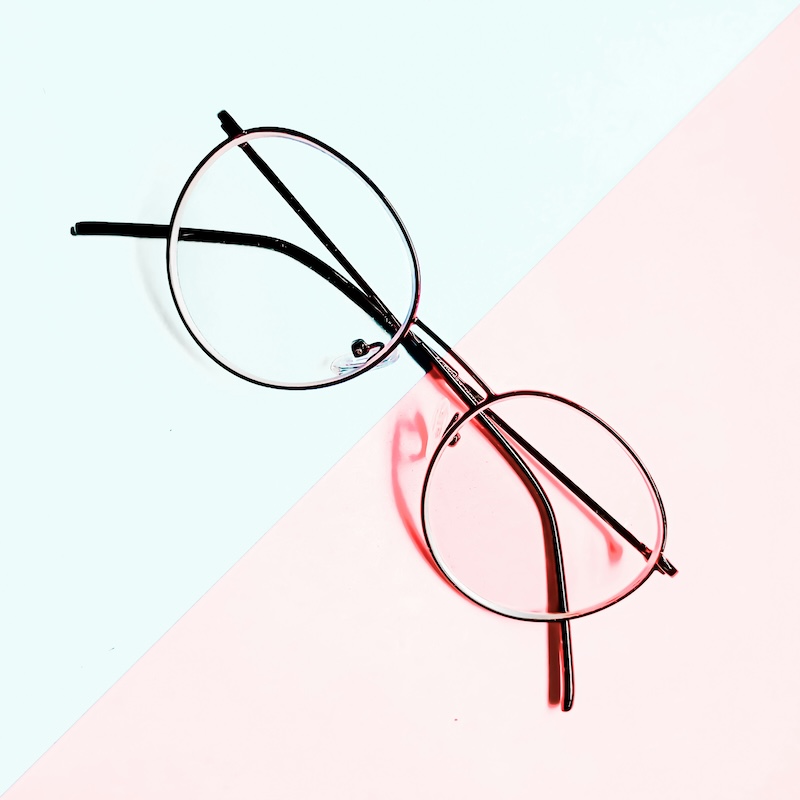Introduction
Titanium has become a popular material for glasses frames due to its unique properties, such as lightweight strength, corrosion resistance, and hypoallergenic characteristics. These features make titanium an ideal choice for eyeglasses, providing comfort, durability, and a sleek aesthetic. In this article, we explore the various applications of titanium in glasses frames, highlighting its benefits and why it is a preferred material for eyewear.
Features of Titanium
Titanium offers several key features that make it particularly suitable for glasses frames:
- Lightweight: Titanium is significantly lighter than other metals, making glasses frames comfortable for long-term wear.
- Strength: Titanium’s high strength ensures that glasses frames are durable and resistant to bending or breaking.
- Corrosion Resistance: Titanium’s resistance to corrosion makes it ideal for eyewear, which is often exposed to moisture, sweat, and environmental conditions.
- Hypoallergenic: Titanium is hypoallergenic, making it a safe choice for people with sensitive skin or metal allergies.


The Most Commonly Used Grades of Titanium in Glasses Frames
- Pure Titanium (Grade 1 or Grade 2): Pure titanium is lightweight, corrosion-resistant, and non-toxic, making it a suitable choice for glasses frames.
- Beta Titanium: Beta titanium is an alloy that includes other metals, providing additional flexibility while retaining strength, making it ideal for flexible and durable frame designs.
Advantages of Titanium in Glasses Frames
The use of titanium in glasses frames offers numerous advantages:
- Comfort: Titanium’s lightweight nature ensures that glasses are comfortable to wear, even for extended periods, reducing the pressure on the nose and ears.
- Durability: Titanium frames are highly resistant to impact and bending, making them more durable than frames made from other materials.
- Corrosion Resistance: Titanium’s resistance to corrosion ensures that frames maintain their appearance and structural integrity, even when exposed to moisture and sweat.
- Stylish Design: Titanium’s strength allows for thinner, sleeker frames, providing a modern and minimalist aesthetic that is both functional and fashionable.
Key Applications of Titanium in Glasses Frames
Titanium is used in a variety of glasses frames, including:
- Everyday Eyewear: Titanium is used in everyday prescription glasses frames due to its lightweight and durable properties, providing comfort for those who wear glasses daily.
- Sunglasses: Titanium is also used in the frames of sunglasses, offering strength and style while being lightweight enough for comfortable wear during outdoor activities.
- Sports and Safety Glasses: Titanium’s strength and flexibility make it ideal for sports and safety glasses, providing a secure fit and protection during high-impact activities.
- Children’s Glasses: Titanium’s durability and lightweight nature make it a suitable material for children’s glasses, which need to withstand daily wear and tear while being comfortable.
Comparisons: Titanium vs. Other Materials in Glasses Frames
Titanium is often compared to other materials used in glasses frames, such as stainless steel, plastic, and aluminum:
- Titanium vs. Stainless Steel: Stainless steel is strong and corrosion-resistant, but it is heavier than titanium, making titanium a more comfortable option for long-term wear.
- Titanium vs. Plastic: Plastic frames are lightweight but lack the strength and durability of titanium. Titanium frames are also less prone to breaking and provide a more premium aesthetic.
- Titanium vs. Aluminum: Aluminum frames are lightweight but not as strong or corrosion-resistant as titanium, making titanium a better choice for durability and longevity.
Benefits of Using Titanium in Glasses Frames
The benefits of using titanium in glasses frames are numerous:
- Long-Lasting Durability: Titanium’s resistance to corrosion and impact ensures that glasses frames last for many years, reducing the need for frequent replacements.
- Reduced Allergic Reactions: Titanium’s hypoallergenic nature makes it suitable for individuals with metal sensitivities, ensuring comfort and safety.
- Lightweight Comfort: The lightweight properties of titanium frames provide a comfortable fit, especially for those who wear glasses all day.
- Stylish and Modern Look: Titanium allows for the creation of thin, sleek frames that are both stylish and functional, catering to those looking for a modern aesthetic.
Challenges in Using Titanium in Glasses Frames
Despite its advantages, there are challenges associated with using titanium in glasses frames:
- Higher Cost: Titanium frames are more expensive compared to frames made from other materials like plastic or stainless steel, which can limit their accessibility.
- Limited Color Options: Titanium is challenging to color, which can limit the variety of finishes and colors available for frames. However, advancements in anodizing techniques are expanding the options.
Future Trends for Titanium in Glasses Frames
The use of titanium in glasses frames is expected to grow as advancements in material processing and coating techniques make it more accessible. Emerging trends include the use of beta titanium for flexible frames that provide both comfort and durability. Additionally, innovations in anodizing are expected to increase the color variety available for titanium frames, making them more appealing to a broader audience. The development of lightweight and smart eyewear, integrating technology with titanium frames, is also on the horizon.
FAQs about Titanium in Glasses Frames
- Why is titanium used in glasses frames?
- Titanium is used due to its lightweight, strong, and corrosion-resistant properties, making it ideal for durable and comfortable eyewear.
- Are titanium glasses frames suitable for people with metal allergies?
- Yes, titanium is hypoallergenic, making it a safe choice for individuals with metal allergies or sensitive skin.
- What types of glasses frames are made from titanium?
- Titanium is used in everyday eyewear, sunglasses, sports glasses, safety glasses, and children’s glasses.
- How does titanium compare to stainless steel in glasses frames?
- Titanium is lighter and more comfortable for long-term wear compared to stainless steel, which can be heavier.
- Are titanium frames more expensive than other materials?
- Yes, titanium frames are generally more expensive due to the cost of the material and the specialized manufacturing processes required.
- Can titanium frames be flexible?
- Yes, beta titanium alloys provide additional flexibility, making frames more durable and resistant to bending.
- How does titanium improve the comfort of glasses frames?
- Titanium’s lightweight nature reduces pressure on the nose and ears, making glasses more comfortable to wear for extended periods.
- Are titanium glasses frames durable?
- Yes, titanium frames are highly durable, resistant to impact, and less prone to bending or breaking.
- Can titanium frames be used for sports eyewear?
- Yes, titanium’s strength and flexibility make it ideal for sports eyewear, providing a secure fit and protection during high-impact activities.
- What is beta titanium, and how is it used in glasses frames?
- Beta titanium is an alloy that includes other metals, providing additional flexibility while retaining strength, making it ideal for flexible and durable frame designs.
- How does titanium compare to plastic in eyewear?
- Titanium is stronger and more durable than plastic, offering a more premium look and feel, though plastic frames are often lighter and more affordable.
- Are there any color limitations with titanium frames?
- Titanium is challenging to color, which can limit the variety of finishes. However, advancements in anodizing are expanding the available color options.
- Why are titanium frames popular for children’s glasses?
- Titanium frames are lightweight, durable, and resistant to damage, making them suitable for the daily wear and tear that children’s glasses often endure.
- How do titanium frames contribute to a modern eyewear aesthetic?
- Titanium allows for the creation of thin, sleek frames that provide a minimalist and modern aesthetic, appealing to those looking for stylish eyewear.
- What future developments are expected for titanium in glasses frames?
- Future developments include advancements in beta titanium for flexible frames, increased color options through anodizing, and the integration of smart technology into titanium eyewear.
Conclusion
Titanium’s unique properties make it an ideal material for use in glasses frames. Its lightweight strength, corrosion resistance, and hypoallergenic characteristics make it invaluable for creating comfortable, durable, and stylish eyewear. Despite challenges related to cost and limited color options, the benefits of using titanium in glasses frames far outweigh the drawbacks, ensuring its continued popularity and expanding role in the future of eyewear design.






